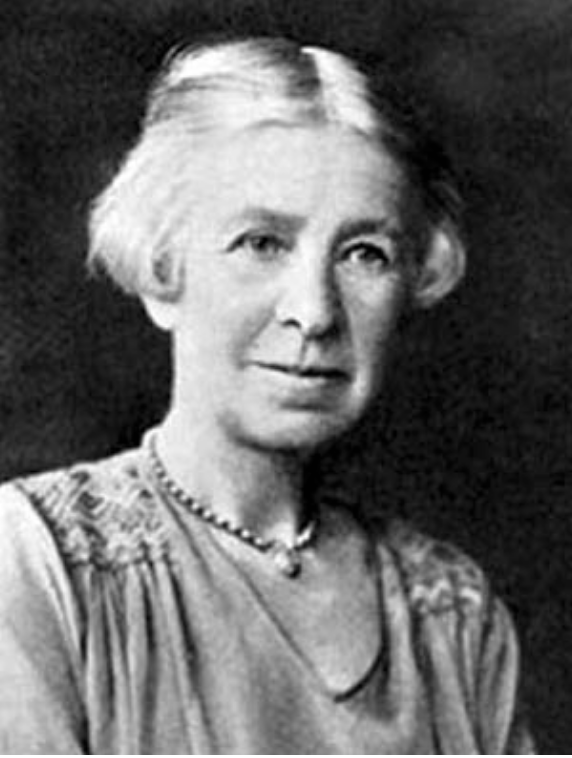Remembering Evelyn Underhill
This remarkable woman is buried in the Additional Burial Ground and you can visit her grave P 80
What is her claim to remembrance? Simply the fact that almost single-handedly she restored to the Church the serious study of the Christian mystics, those men and women who, she wrote, ‘insist that they know for certain the presence and activity of that which they call the Love of God … They know a spiritual order, penetrating and everywhere conditioning though transcending the world of sense.’
Her major study Mysticism (1911) remains a landmark in the literature on its subject. Through it she wished to make the experience and thought of the great mystics available, not for detached study but as a guide and inspiration to contemporary Christians. The mystics, she said, remind us that engaging with the realm of the Spirit is ‘not to know about, but to Be.’
In her books, she returned constantly to the assistance that the mystics can give to Christian life and devotion today. For Evelyn Underhill, the mystics were no more ethereal or ‘otherworldly’ (in the worst sense) than she was herself. She was a woman who combined deep Christian discipleship with an astringent mind, a keen humour and a down-to-earth character. Today’s vague talk about being ‘spiritual but not religious’, would have earned brisk dismissal from her. ‘No deeply religious person is without a touch of mysticism, and no mystic can be other than religious.’

Given the range of her scholarship, and her grasp of theology and philosophy, it comes as a surprise to find that she was largely self-taught in these disciplines, yet she was regarded seriously by professional scholars. She was concerned that theology should cease being a matter of arid speculation and study among specialists and return to being inseparably linked with Christian life and worship. Her second major book, written near the end of her life and reflecting her mature thought, was called Worship.
Nor did her activities end with writing. From 1924 onwards, she became known as a conductor of retreats. Many of her later books are based on material that she delivered during these retreats. Also, she helped countless individuals by her counsel. She was also engaged in ecumenical work, aimed at encouraging dialogue between Anglicans and members of the Orthodox Church. Everything she did reflected her abhorrence of narrowness in Christian life.
She achieved a prodigious amount of work, yet she did it as the wife of a solicitor, playing her full part in his life. To this, she added regular visits to the poor. She was clear that authentic Christian prayer should lead to awareness of social realities, and to action where necessary.
It must be stressed that though her work was concerned with the life of the Spirit, she was not someone to whom prayer and meditation and even belief came easily. Notebooks discovered after her death reveal that her path was frequently lonely and anguished, though this was never apparent to those she helped. It is her refusal to hide behind easy pieties and sentimentalities that make her a continuing encouragement and challenge to Christians.
We have much to thank her for.